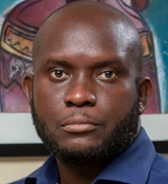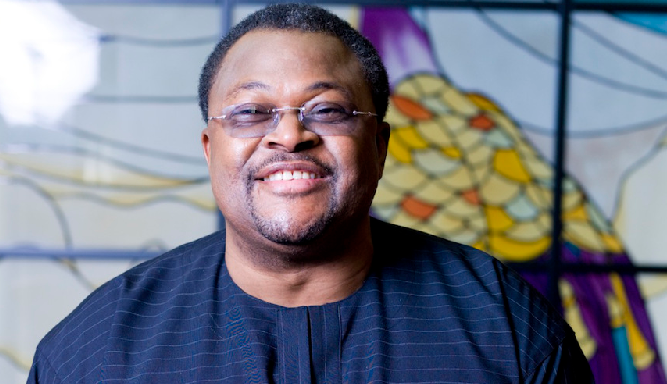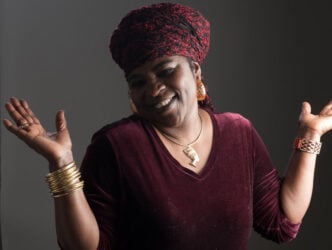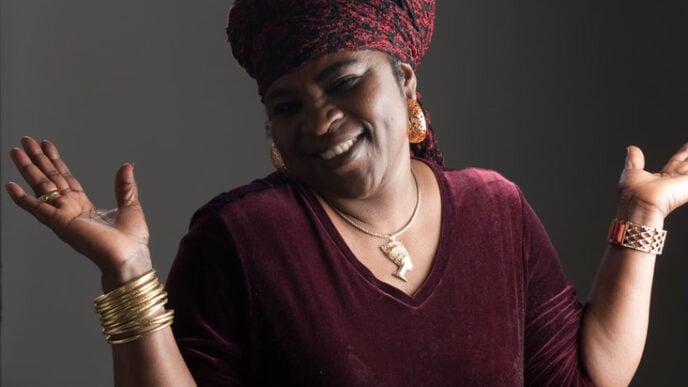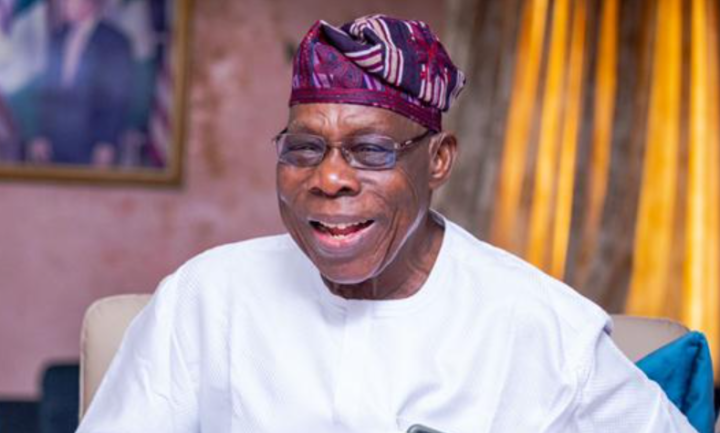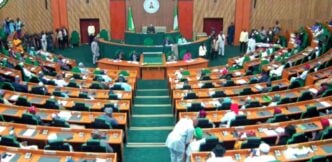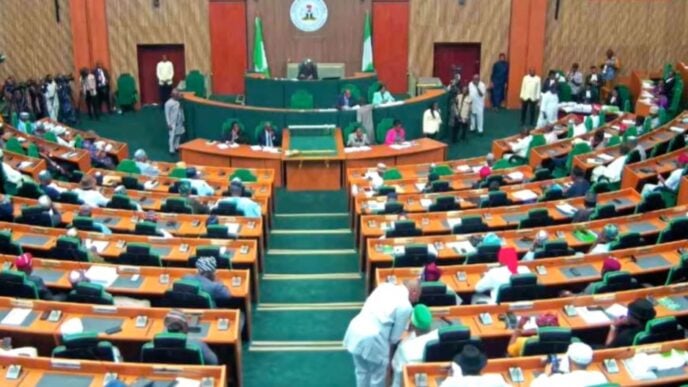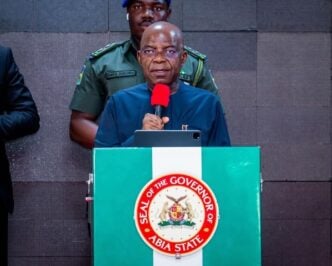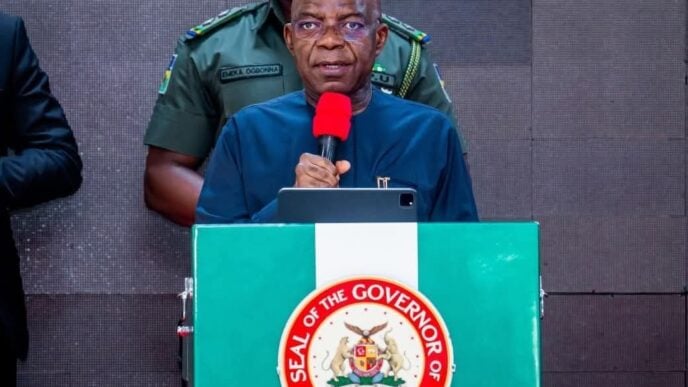What is next for Dr. Michael Adenuga, popularly known as ‘The Spirit of Africa’ or ‘The Bull’ – due to his business and socioeconomic exploits across the energy, banking, telecommunications and real estate sectors? Well, it depends on the perspective. But given the role that high-end technology has played in enabling him attain business success, as well as what similar persons of means have done in leading countries of the world, then idealistically holding Adenuga to the task of enabling high-end technology manufacturing and development in Nigeria becomes worthwhile goal. After all, he is ‘The Bull’, who makes things happen.
And what are Dr. Adenuga’s businesses that have required technology?
First is Globacom (Glo). The international company which commenced mobile telephony operations in Nigeria in 2003, after securing a GSM in August 2002. Glo currently has 20.7 million telephone subscribers in Nigeria, with previous licensed operation in Ghana and Benin Republic. Adenuga’s bullish approach to challenging business situations came to bear, after his previous attempt at a GSM license in the sector with Communications Investment Limited (CIL) in 2001, was unsuccessful at first attempt. His resilience paid off, with Globacom winning a second national carrier license, of which mobile telephony was just a part. Historically, Glo is the first single company to build a high-capacity submarine fibre-optic cable (Glo-1) from the United Kingdom to Nigeria, which has led to significant digital economy developments. Glo-1 is a $1.5 billion investment for the 6,100-mile submarine cable linking Nigeria to Europe, which has significantly increased broadband connectivity across West Africa.
Telephony thrives on technology, and Glo has procured software, SIM cards, semiconductor chips, routers, switches, cables, data centers, base stations, and other technologies for its over 20 million subscribers. But a study by the Nigerian Communications Commission (NCC) the industry’ regulator in 2018 shows that within the sector in Nigeria, only 23 percent of software in use is obtained locally, while 77 percent of software in use is foreign. Also, only 14 percent of hardware comes from local companies, while 86 percent of hardware is foreign. For Base Transceiver Stations (BTS) products, a meagre 12 percent is manufactured in Nigeria, while 88 percent is foreign. In addition, data from International Trade Center (ITC) showed that 99 percent of telephone sets in Nigeria between 2019 and 2021 amounting to $2.35 billion were imported, with $1.71 billion or (72.7 percent) coming from China. ITC categorization includes smartphones, facsimile machines for line telephony, teleprinters, parts of telephone sets, and other associated technologies.
Advertisement
This huge importation of communications technologies into Nigeria, provides a ‘what next’ opportunity for Dr. Adenuga. The challenges that come with manufacturing high-end communications technologies are what he can take as a task, to enhance Nigeria’s domestic manufacturing. That some software, hardware BTS products and mobile devices are being produced in Nigeria shows that some level of domestic manufacturing is very viable. With 169 million mobile phone subscribers and 138.7 million internet subscribers in the country, there is a market for a significant part of telephone and communications technology to be manufactured in Nigeria. The task for Adenuga will be how to increase the current percentages by at least 15 percent, given the international nature of technology manufacturing supply chains.
Next is the petroleum sector, where Dr. Adenuga plays big, beginning with ownership of Consolidated Oil, and subsequently Conoil Plc, the first and largest indigenous oil marketing company in Nigeria. With Conoil Producing Limited, some of the industry assets of the company according to some records include OML 153, OML 150, OML 136 and OML 59. What is said to stand Dr. Adenuga out in the sector is that he chose the more challenging part of fully exploring prospective fields until they became commercially viable, which was different from some domestic-owned licensed oil firms that simply sold off prospective fields to international oil companies (IOCs). As Prof. Jubril Aminu, the then Petroleum Minister who awarded oil blocs to Nigerian firms opined, he desired to see Nigerians and Nigerian companies play similar roles to what IOCs had achieved.
Given that that objective has been achieved with Adenuga’s Conoil, and other Nigerian firms such as SEPLAT Energy and First E&P, there has to be a ‘what next’ step from the Jibril Aminu objective. That ‘what next’ for Dr. Adenuga can include identifying some of the technologies used for oil and gas production and storage, then identify challenging but feasible technologies that can be manufactured partly or fully in Nigeria. In international manufacturing supply chain, manufacturing opportunities can exist with rigs, oil tools, pipeline fabrications, sensors, among others. With Nigeria producing some of the minerals and raw material used in the manufacturing of some of the petroleum sector equipment, supporting some level of processing of raw materials into manufacturing components, can be a good place to start.
Advertisement
Banking is another sector where Dr. Adenuga has made great business exploits. He founded Devcom Merchant Bank in 1989, and Equitorial Trust Bank (ETB) in 1990. Both banks merged in 2005 under the ETB brand, until its acquisition by Sterling Bank in 2011. Dr. Adenuga is also reported to hold substantial shares in FBN Holdings Plc, the parent company of First Bank of Nigeria. Similar to the other sectors discoursed above, the Nigeria’s banking sector has been significantly enhanced in recent decades, with the boost from increased internet technologies from companies like GLO providing banks with the opportunities to increase customer base, enhance efficiency and profits, and provide seamless international financial services.
Nigeria’s banking sector is however heavily reliant on foreign software, enterprise systems and applications. Many tools, equipment and technologies in banking halls are fully imported. The ‘what next’ for Dr. Adenuga in the financial sector can include facilitating the inclusion of Nigerian companies in the manufacturing and development supply chains of software, enterprise systems, cybersecurity networks and other technologies that contemporary banks utilize.
Globacom’s MoneyMaster Payment Service Bank (PSB) can be seen as a bridge between Dr. Adenuga’s telecoms and banking sector enterprises, as the PSB leverages mobile technology to enhance financial inclusion, through the deployment of over 100,000 agents that deliver banking services to Nigeria’s unbanked population. His construction and real estate interests in firms such as Cobblestone Properties, Abumet Nigeria Limited and Julius Berger, also utilize technologies, tools and equipment such as cranes, tractors, smart-home technologies and heavy-duty machinery in meeting their commercial objectives.
Highlighting manufacturing supply chain inclusion for Nigerian firms is because contemporary manufacturing usually has an international chain. The feasible aim will be to ensure that a very significant portion in the development or manufacturing of such technologies are done in Nigeria and by Nigerian firms. It is not going to be easy in Nigeria, given prevalent business environment challenges and Nigeria ranking a lowly 113 out of 133 on the Global Innovation Index. But if there is any chance of Nigeria attaining such level of tech manufacturing, ‘Bullish’ entrepreneurs like Dr. Adenuga will be a part of it, given that he has successfully managed the challenges in the Nigerian business environment.
Advertisement
Similar men of bullish means such as Cornelius Vanderbilt, John D. Rockefeller, Andrew Carnegie, J. P. Morgan, and Henry Ford established businesses such as Standard Oil (ExxonMobil, BP, Chevron, ConocoPhillips), Ford Motor Corporation, JPMorgan Chase, railroad and shipping companies, while also funding technology innovations that enhanced their businesses and contributed to the United States (U.S.) becoming the world’s largest economy, with current GDP of $29 trillion. Contemporary greats such as Microsoft co-founder Bill Gates, now fund biotechnology, agriculture, healthcare and other forms of technology-based research and development (R&D) through their foundations.
In attempting to recommend any of the technologies that Dr. Adenuga may want to commence this proposition with, it is strategic to identify a particular technology that is found in all the sectors his businesses operate in- semiconductors. One common denominator among the technologies his businesses have used is semiconductor chips. Therefore, facilitating the establishment of a semiconductor fabrication (fab) plant in Nigeria, will be a noble obligation. The Fab can focus on manufacturing chip nodes that form the workhorse of automobiles, rigs, telecoms base stations, and network switches. Also, a semiconductor fab comes with a science, technology, research and development ecosystem that permeates into other sectors. It is no mean feat, but if there is a businessman that can deliver on such challenging prospect in Africa, it will include ‘The Spirit of Africa’. His bullish business skill-set and international supply chain networks will be required to get things done. It will also be tasking enough for his bullish energies.
Successfully delving into semiconductor manufacturing- or the outsourced semiconductor assembly and test (OSAT) manufacturing section at the minimum, puts Dr. Adenuga in the company of other ‘Bulls’ like Dr. Morris Chang, the founder of Taiwan Semiconductor Manufacturing Company (TSMC)- which manufactures over 90 percent of the world’s most advanced semiconductor chips, especially for clients such as Apple Inc, AMD, Invidia and Broadcom. The business exploits of Dr. Chang with TSMC in Taiwan after he returned from the U.S.- like Dr. Adenuga, and other Taiwanese industry players, has significantly contributed to Taiwan’s $805 billion GDP, its per capita income of $34,400 and becoming one of the most strategically important countries in the world.
And there are Nigerians with excellent experience in the semiconductor industry that can support this goal. They include Prof. Ndubisi Ekekwe, the U.S. based patented practitioner in the industry and founder of FASMICRO semiconductor company, an Intel certified FGPA partner for Africa, who has some experience in supporting countries in semiconductor development. There is also Prof. Oluwole Soboyejo, the very outstanding material scientist and the current President of SUNY POLY University in the U.S.
Advertisement
Adenuga’s endowment of the ‘Dr. Mike Adenuga (Jnr) Professorial Chair in Entrepreneurship Studies’ at the, University of Lagos (UNILAG) in 2008, with a focus on research that supports enterprise creation and development in Nigeria, is a positive indicator on his commitment to R&D for development. There is however the need for a ‘what next’ endowment professorial R&D engagement that supports tech manufacturing, minerals mining and processing, equipment tools production, among others.
A common policy denominator to note is that Dr. Adenuga’s exploits across the business sectors mentioned, were due to the ‘what next’ policy orientation of General Ibrahim Babangida (IBB) and subsequently President Olusegun Obasanjo, especially after Nigeria’s balance of payment crises of the 1980’s. For IBB, his policy team that included U.S. educated Dr. Kalu Idika Kalu, Oba Olu Falae, Dr. Chu Okongwu among others, designed structural reforms for ‘what nexts’ in banking through the BOFIA Decree of 1991, telecommunications with Decree 75 of 1992, broadcasting with Decree 38 of 1992, and policy for Nigerian companies in petroleum sector. There was the Obasanjo GSM policy consolidation and NCA Act 2003 and Banking Sector reforms of 2005. These were all ‘what next’ economic policies, which Dr. Adenuga leveraged on. Now is time for him to take it higher.
Advertisement
And there is broader socioeconomic perspective. Alongside banking reforms of 2005, telecoms reforms of 2001 with Globacom as active participant led to Nigeria economy growing from $59.5 billion to $574 billion in 2014 and becoming Africa largest economy. The ICT sector grew from 1.84 percent of GDP in 2000 to 10 percent of GDP in 2014. Nigeria and its diaspora glowed with pride, leading to significant reverse migration. The current government’s economic goal to grow GDP from the current $243 billion to $1 trillion by 2030 will need new (sub) sectors, similar to what ICT and finance sectors did for the economy between 1999-2014. Semiconductor manufacturing and associated activities can be the catalyst, as there is no $1 trillion economy in the world without high-end technology manufacturing.
While everyman deserves some restful life after decades of exertion, Dr. Adenuga has a history of relentless achievement. His promotion of African culture activities such GLO’s support for the Ojude Oba Ijebu festival and Ofala Festival of Onitsha, demonstrates his cultural awareness about the place of Nigeria and Africa in the global community. Contemporary geopolitical events across the world, increasingly characterized by amplified global protectionism, technology hoarding, among others, further highlight Africa’s exposure and fragility to global affairs.
Advertisement
For Dr. Michael Agbolade Ishola Adenuga Jr who was conferred with Nigeria’s second highest national award of the Grand Commander of the Order of the Niger (GCON) and France’s highest national honour of Commander of the Legion of Honour by the Nigerian and French Governments respectively, for his contributions to economic, social and bilateral development, it is appropriate to ask the ‘Spirit of Africa’ questions about ‘what next’? Perhaps a semiconductor fabrication plant to produce the most demanded workhorse chip nodes in Nigeria and Africa for a start? That should help Nigeria and Africa to glow with pride. Egbon, Le Taureau, s’il vous plaît, êtes-vous d’accord?
Uwanaka writes from African University of Science and Technology, Abuja. [email protected]
Advertisement
Views expressed by contributors are strictly personal and not of TheCable.
